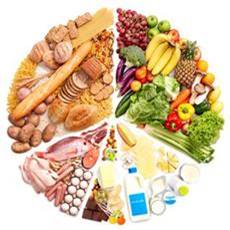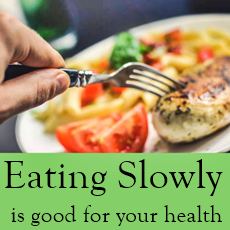Cholesterol
The Truth about Dietary Cholesterol
Fact Checked
×All the content published in our website is fact checked to validate its accuracy.
Visit our guidelines web page to learn more about our strict processes regarding how we review our content's sources: reliable and reputable journals, media websites, universities, colleges, organizations, and professionals.
Our articles are based on scientific evidence, and the references are included in its footnotes, which are clickable links to sound scientific papers.
First published: 24. Dec.2024
Overview
Cholesterol plays an important role in the body. It is synthesized in all tissues as well as ingested with the fat of animal-based foods.
Until recently it was pinpointed as the culprit of heart disease, but research has disclosed that dietary cholesterol shouldn't be taken isolated from the full array of health-damaging ingredients of the Western diet. Sugars, unhealthy fats, processed foods, lack of plant-based ingredients, and physical activity have a far more negative impact on cardiovascular health than dietary cholesterol.
This article will summarize our knowledge about cholesterol, its types, sources, and health effects.
References and Further Reading
(1) Shin, K.C., Ali Moussa, H.Y. and Park, Y., (2024). Cholesterol imbalance and neurotransmission defects in neurodegeneration. Exp Mol Med 56, 1685–1690 (2024). https://doi.org/10.1038/s12276-024-01273-4
(2) Evans, M.A. and Golomb, B.A. , (2009). Statin-Associated Adverse Cognitive Effects: Survey Results from 171 Patients. Pharmacotherapy: The Journal of Human Pharmacology and Drug Therapy, 29: 800-811. https://doi.org/10.1592/phco.29.7.800
(3) Satyanarayana, U., (2002). Biochemistry. (2nd ed.). Kolkata, India: Books and Allied. ISBN 8187134801. OCLC 71209231
(4) Mie Balling, Shoaib Afzal, Anette Varbo, Anne Langsted, George Davey Smith, Børge G. Nordestgaard, (2020). VLDL Cholesterol Accounts for One-Half of the Risk of Myocardial Infarction Associated With apoB-Containing Lipoproteins. Journal of the American College of Cardiology, Vol 76:23, 2725-2735, ISSN 0735-1097, https://doi.org/10.1016/j.jacc.2020.09.610.
(5) Ikezaki H, Lim E, Cupples LA, Liu CT, Asztalos BF, Schaefer EJ., (2021). Small Dense Low-Density Lipoprotein Cholesterol Is the Most Atherogenic Lipoprotein Parameter in the Prospective Framingham Offspring Study. J Am Heart Assoc. 2021 Feb;10(5):e019140. doi: 10.1161/JAHA.120.019140. Epub 2021 Feb 15. PMID: 33586462
(6) Berrougui, Hicham et al., (2012). Health benefits of high-density lipoproteins in preventing cardiovascular diseases. J Clin Lipidol. 2012 Nov-Dec;6(6):524-33. doi: 10.1016/j.jacl.2012.04.004. Epub 2012 Apr 13. PMID: 23312048
(7) Endo Y, Fujita M, Ikewaki K., (2023). HDL Functions-Current Status and Future Perspectives. Biomolecules. 2023 Jan 4;13(1):105. doi: 10.3390/biom13010105. PMID: 36671490
(8) Malin Schoeneck, David Iggman, (2021). The effects of foods on LDL cholesterol levels: A systematic review of the accumulated evidence from systematic reviews and meta-analyses of randomized controlled trials. Nutrition, Metabolism and Cardiovascular Diseases, Vol 31:5, 1325-1338, ISSN 0939-4753, https://doi.org/10.1016/j.numecd.2020.12.032.
(9) Biing-Hwan Lin, Joanne Guthrie, and James R. Blaylock (1996). The Diets of America's Children: Influences of Dining Out, Household Characteristics, and Nutrition Knowledge . Economic Research Service/USDA, Agricultural Economic Report No. 746. Online: https://www.ers.usda.gov/publications/pub-details/?pubid=40755. Accessed: 24.Dec.2024
(10) Berger S, Raman G, Vishwanathan R, Jacques PF, Johnson EJ., (2015). Dietary cholesterol and cardiovascular disease: a systematic review and meta-analysis. Am J Clin Nutr. 2015 Aug;102(2):276-94. doi: 10.3945/ajcn.114.100305. Epub 2015 Jun 24. PMID: 26109578
(11) Fernandez ML, Murillo AG., (2022). Is There a Correlation between Dietary and Blood Cholesterol? Evidence from Epidemiological Data and Clinical Interventions. Nutrients. 2022 May 23;14(10):2168. doi: 10.3390/nu14102168. PMID: 35631308
(12) Wu F., Zhuang P., Zhang Y., Zhan C., Zhang Y., Jiao J., (2021). Egg and Dietary Cholesterol Consumption and Mortality Among Hypertensive Patients: Results From a Population-Based Nationwide Study. Front. Nutr. 2021;8:1–10. doi: 10.3389/fnut.2021.739533.
(13) Sugano M, Matsuoka R., (2020). Nutritional Viewpoints on Eggs and Cholesterol. Foods. 2021 Feb 25;10(3):494. doi: 10.3390/foods10030494. PMID: 33669005
(14) Carson JAS, Lichtenstein AH, Anderson CAM, Appel LJ, Kris-Etherton PM, Meyer KA, Petersen K, Polonsky T, Van Horn L, (2020). Dietary Cholesterol and Cardiovascular Risk: A Science Advisory From the American Heart Association. American Heart Association Nutrition Committee of the Council on Lifestyle and Cardiometabolic Health; Council on Arteriosclerosis, Thrombosis and Vascular Biology; Council on Cardiovascular and Stroke Nursing; Council on Clinical Cardiology; Council on Peripheral Vascular Disease; and Stroke Council. . Circulation. 2020 Jan 21;141(3):e39-e53. doi: 10.1161/CIR.0000000000000743. Epub 2019 Dec 16. PMID: 31838890
About this Article
Cholesterol, A. Whittall
©2024 Fit-and-Well.com. First Published: 24.Dec.2024. Update scheduled for 24.Dec.2027. https://www.fit-and-well.com/fitness/cholesterol.html
Tags: cholesterol, heart, diet, exercise




